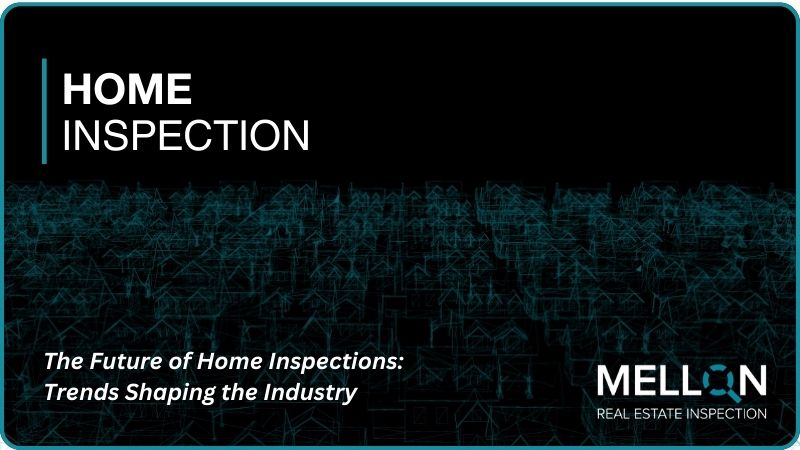The Future of Home Inspections: Key Trends Shaping the Industry

The landscape of home inspections is undergoing a profound transformation, driven by technological advancements and evolving consumer expectations. In a realm where precision and efficiency are paramount, the future of home inspections is taking shape with innovative trends that promise to redefine the industry. This article delves into these emerging trends, offering insights into how they are poised to shape the future of home inspections.
Integration of Smart Home Technology in Inspections
The first pivotal trend reshaping the future of home inspections is the seamless integration of smart home technology into the assessment process. As contemporary residences increasingly feature interconnected and intelligent systems, home inspectors are adapting to appraise not only the structural integrity of a property but also the functionality and compatibility of its technological components.
The surge in demand for homes equipped with smart features has mandated a shift in the inspector's role. Beyond scrutinizing foundations and roofing, inspectors are now tasked with evaluating the efficiency of smart thermostats, security systems, and integrated appliances. This trend ensures that the inspection process aligns with the expectations of a tech-savvy clientele, transcending the traditional confines of structural assessments.
Drone Technology for Enhanced Roof and Exterior Evaluations
Assessments facilitated by drone technology is another transformative trend in the realm of home inspections. Traditionally, inspecting elevated structures such as roofs posed logistical challenges and safety concerns for inspectors. The advent of drones equipped with high-resolution cameras has revolutionized this aspect of inspections, offering unparalleled views of a property's roof and exterior.
The integration of drones expedites the inspection process while mitigating risks associated with manual assessments at elevated heights. Homebuyers can now benefit from a comprehensive and detailed examination of roof conditions, identifying potential issues such as damaged shingles, deteriorating chimneys, or gutter irregularities. This trend not only enhances the efficiency of inspections but also amplifies the precision and depth of the assessment, providing invaluable insights for both buyers and sellers.
Predictive Maintenance Assessments Through Data Analytics
Another critical trend shaping the future of home inspections involves the incorporation of data analytics for predictive maintenance assessments. Moving beyond the traditional role of providing a snapshot of a property's current condition, inspectors are harnessing the power of historical data to anticipate and proactively address future maintenance needs.
Data analytics enable inspectors to recognize patterns and trends that might indicate potential issues in the long term. This forward-thinking approach not only empowers homeowners with insights into anticipated maintenance requirements but also allows for strategic planning to prevent minor issues from escalating into significant problems. The application of data analytics aligns with a broader industry shift toward preventive home maintenance, emphasizing the importance of addressing potential concerns before they escalate.
The future of home inspections is characterized by a symbiotic relationship between technological innovation and consumer-centric practices. The seamless integration of smart home technology caters to the demands of an increasingly tech-savvy clientele, expanding the inspector's role to encompass the evaluation of intelligent systems. Drones, with their aerial capabilities, offer a transformative lens through which inspectors can assess elevated structures with unprecedented precision and efficiency. The incorporation of data analytics for predictive maintenance assessments signifies a paradigm shift toward a proactive and strategic approach in ensuring the long-term integrity of residential properties.
These trends collectively contribute to a home inspection landscape that transcends traditional boundaries, delivering more insightful, efficient, and tailored assessments. As the real estate industry continues to evolve, home inspections are poised to play a pivotal role in providing consumers with the knowledge and confidence needed to navigate the complex terrain of property transactions.
FAQ
Ask for recommendations and verify their license and certification. Expect a comprehensive examination of the property and a detailed report summarizing findings.
The average home inspection takes between 2.5 and 3 hours. In most cases, residential inspection reports are delivered within 24 hours from the completion of the inspection.
Common structural concerns include foundation problems, roof damage, and issues with framing or load-bearing walls.
Streamlined, Efficient, and Reliable
At Mellon Real Estate Inspection, we ensure that we meet, and exceed your inspection requirements, thanks to our enhanced and efficient services and technologies. We are here to guide your project across the finish line according to your timeline and augment your real estate inspection needs with our exceptional repertoire of knowledge and insight.
Contact us today at 1-403-993-8006, or fill out the form below, and let’s get started on your inspection.


